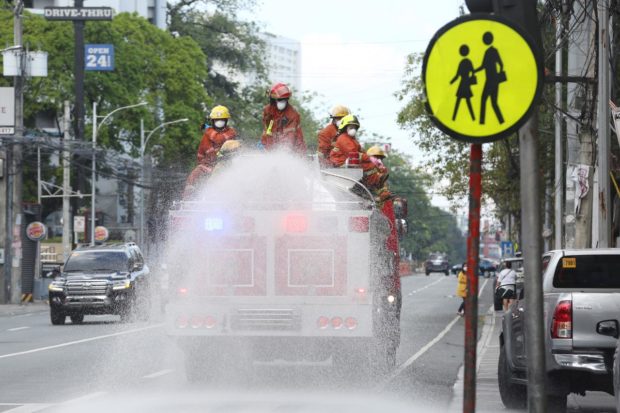DILG to BFP: Exercise due diligence in granting certifications to fire volunteer orgs

MANILA, Philippines — The Department of the Interior and Local Government (DILG) has reminded fire volunteer organizations and safety practitioners that they must secure a certificate of competency (COC) first from the Bureau of Fire Protection (BFP) before they start operating.
According to Interior Secretary Eduardo Año on Thursday, he has asked BFP in In DILG Memorandum Circular (MC) No. 2022-072 to ensure that only qualified fire safety practitioners (FSPs) who have complied with the requirements — like a mandatory training program and the submission of documents — are allowed to help in firefighting.
While the BFP is the agency mandated to put out fires, several groups and organizations have also set up fleets of firefighters and firetrucks, meant to assist authorities during emergencies.
“Fire safety is a matter of life and death for the victim, and we want to ensure that we have the right and competent people on top of this whether in private or public buildings, establishments, or facilities,” Año said in a statement.
“Hence, the BFP must exercise due diligence in the issuance of COCs for fire safety professionals,” he added.
The DILG chief stressed that Section 6.0.3.1 of the Revised Implementing Rules and Regulations (RIRR) of Republic Act No. 9514 or the Fire Code of the Philippines states that a COC should be issued by BFP to fire volunteers, fire volunteer organizations, and FSPs once they have completed the mandatory training and evaluation.
Año said that the same applies to professionals who design, construct, or maintain fire safety systems for buildings and establishments — these groups should secure a COC first before operating.
“[…] Any licensed professional such as architects, civil, mechanical, electrical, and sanitary engineers, engaged in, but not limited to, design, construction, installation, repair and maintenance, assessment, and rehabilitation of fire safety construction, suppression and control systems, protective and warning systems, and life safety-related services are required to secure a COC from the BFP Chief before engaging in such work,” he said.
“[…] The BFP can only grant COC to FSPs who satisfactorily complied with the requirements such as the completion of 48 hours of mandatory training conducted by the Fire Safety Practitioner Training Organization (FSPTO) on passive and active fire protection such as protection of vertical opening and combustible concealed spaces, fire stopping, and automatic fire suppression system, among others,” he added.
Ensuring that FSPs and companies engaged in creating and maintaining fire safety systems are competent is important to keeping the public safe from accidents, the DILG Secretary said.
“Together with the BFP, we continue to find ways to ensure that our FSPs are competent and capable to carry out their duties because they serve as our first line of prevention responsible for making sure that every project and building proposal maintains all necessary fire protection and life safety features,” Año noted.
Aside from that, the memorandum also mandated the creation of Board for Issuance of Certificate of Competency (BICC), which will facilitate and streamline the processing of COCs.
The BICC, composed of the Director for Fire Safety and Enforcement as Chairperson, the Chief of Legal Services of the BFP-National Headquarters as Vice-Chairperson, and three other BFP Personnel with expertise in the said field, are tasked to supervise the COC application and evaluation processes.
Fire incidents have seen a reduction over recent years, but BFP reported last March that fire incidents have increased since 2022 started. In an interview with GMA News last March 1, BFP spokesperson Supt. Annalee Carbajal-Atienza said that fire incidents from January to February 2022 increased by almost 13 percent compared to the same time period in 2021.
RELATED STORY:
Arming BFP personnel with guns inconsistent with duty to kill fire – CHR